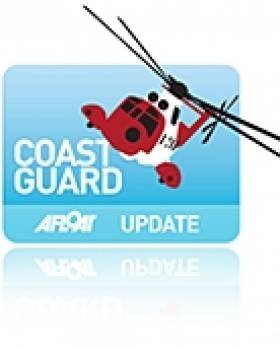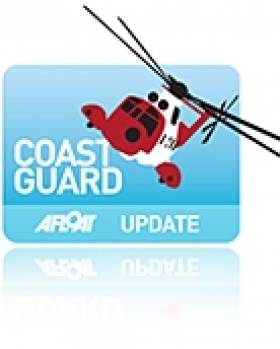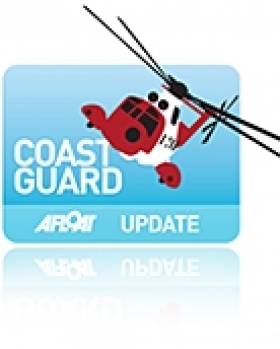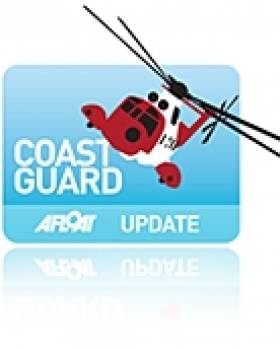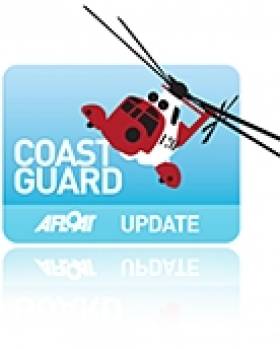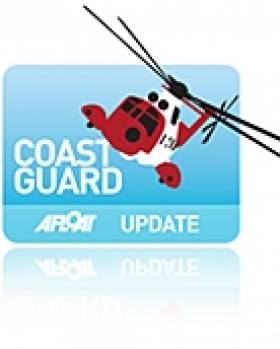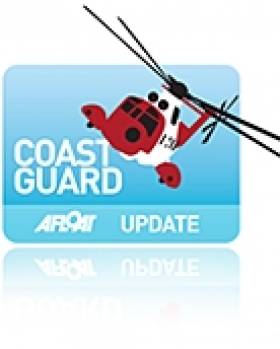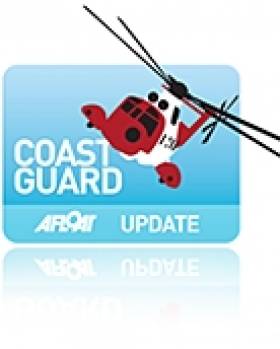Displaying items by tag: Shipping Minister Mike Penning
Search and rescue operations from Northern Ireland's only dedicated coastguard centre are on the increase, the Belfast Telegraph reports.
The latest figures show that there were 50 per cent more callouts to the Bangor-based centre last year than in 2006.
Shipping Minister Mike Penning - who is behind controversial plans to streamline the UK's coastguard network, which could see Bangor either closed or reduced to daylight operation - also confirmed that more than a third of callouts were made at night.
As previously reported on Afloat.ie, the final decision on the coastguard proposals will be taken by 19 July.
Decision on UK Coastguard Cuts Next Month
The final decision on plans to streamline the UK's network of coastguard centres will be taken next month, the News Letter reports.
As previously reported on Afloat.ie, the station at Bangor - Northern Ireland's only 24-hour search and rescue co-ordination centre - is at risk of closure under the proposed cuts.
Shipping Minister Mike Penning says the decision will be announced on 19 July, following the report of the Commons Transport Select Committee next week, after which a second consultation period will begin.
He reportedly told a Westminster debate last week that "no change is not an option".
Northern Ireland MPs voiced their opposition at the debate to any reduction of service at Bangor, with David Simpson of Upper Bann saying that it "would have a significant effect on the levels of service and rescue".
The News Letter has more on the story HERE.
UK Minister Grilled Over Coastguard Closures
The UK Shipping Minister has hit out at claims that Northern Ireland coastguards were barred from speaking to the Commons committee looking into plans to streamline the British coastguard network.
According to the Belfast Telegraph, Minister Mike Penning maintained he had "not gagged anybody" when questioned over his forbidding officers from a number of coastguard stations - including Bangor - from giving testimony to the transport committee.
The minister explained his decision on the basis that coastguards are civil servants and that "a civil servant's job is to support the government of the day".
He also indicated to the inquiry panel that he was working towards keeping open 10 stations instead of the eight listed in the original plans, under which Bangor would either be downgraded to a daytime station or closed outright.
The Belfast Telegraph has more on the story HERE.
'Grave Consequences' If UK Coastguard Stations Close Says Union
Union leaders and seafarers have spoken out over the proposed closure of coastguard stations across the UK as a parliamentary committee begins its inquiry into the cutbacks.
Northern Ireland's only full-time search and rescue centre at Bangor is one of 11 stations under threat of closure under plans spearheaded by Shipping Minister Mike Penning to streamline Britain's coastguard network down to just seven bases.
According to the Belfast Telegraph, officials from mariners' union Nautilus International told MPs at the Commons Transport Select Committee that there should be an "absolute minimum" of 11 stations across the UK, lest there be "grave consequences for safety in UK waters".
British Prime Minister David Cameron has promised to rethink the proposed reforms if they pose any threat to safety at sea. The Labour Party has already branded them as "ill-thought-out madness".
The public consultation on the proposed changes is set to close on 5 May.
Possible Rethink on UK Coastguard Cutbacks
The British government could be ready to change its plans for the streamlining of the UK coastguard service.
The Belfast Telegraph reports that while there will be no turning back on reforms, concessions such as closing fewer stations and keeping more open 24/7 are being considered - which could save Northern Ireland's only full-time coastguard base from the chop.
The centre at Bangor was earmarked for scaleback or closure under plans proposed by Shipping Minister Mike Penning, But he was forced to extend the consultation period, with a spokesperson saying that "the government is committed to taking all points of view into account before decicing how best to proceed".
Shadow Shipping Minister Jim Fitzpatrick said: “We were concerned about the level of cuts initially proposed and are pleased that the Government appears to be reviewing its plans."
The Belfast Telegraph has more on the story HERE.
Loss of Bangor 'Would Jeopardise Air Rescues'
Ireland's free provision of air-sea rescue services to Northern Ireland could be in jeopardy if the Bangor coastguard centre is closed, a DUP MP has warned.
In today's Belfast Telegraph, Strangford's Jim Shannon said that loss of the cross-border relationship would "most certainly end in loss of life".
Shannon reiterated that the Bangor centre is not only responsible for Northern Ireland's coastline but also its inland waterways and loughs, and mountain areas such as the Mournes.
Merseyside MP Bill Esterson is also quoted as warning that his local coastguard staff "don't feel equipped to look after Northern Ireland" if services are consolidated in Liverpool.
Shipping Minister Mike Penning gave his assurance that coastguard staff would not be victimised if they submit their views to the open consultation, which has been extended to 5 May.
Minister's Praise of Bangor Coastguard 'Rings Hollow'
UK Shipping Minister Mike Penning's praise of staff at Northern Ireland's only coastguard station has been described as 'hollow' by a DUP MLA.
Penning had described his meeting with staff at the Bangor coastguard centre, which is threatened with closure under new streamlining plans, as "a breath of fresh air".
But the DUP's Peter Weir told the Community Telegraph that his praise "rings a little hollow as it is the minister who created the problem in the first place".
He added: "“We cannot be allowed to be the only part of the UK to be without this facility, and the Secretary of State should be making it clear to his colleagues that he feels so strongly about this that he considers this a resigning matter."
North Down Mayor John Montgomery (DUP) also complained that neither he nor his councillors were informed of the minister's flying visit, which had been rescheduled after a previous cancellation.
"Is the Shipping Minister running scared of North Down councillors?" he asked.
Penning Says Meeting with Bangor Coastguard Staff Clears Air
UK Shipping Minister Mike Penning described his meeting with Bangor coastguard staff last week as "a breath of fresh air", BBC News reports.
Last Wednesday Penning met staff at Northern Ireland's only coastguard centre, which is threatened with closure under plans to streamline the UK's coastguard station network.
Minister Penning admitted to BBC News that Bangor was not on the original list of centres marked for closure.
"It was a decision made by myself and the secretary of state and we were honest about that," he said, adding that there was now "acceptance of the people in the frontline that there has to be change and there has to be modernisation".
The minister said no date had been set for a final decision on which stations would be closed.
Meanwhile, the Community Telegraph reports on confusion among the public following the meeting with Maritime and Coastguard Agency (MCA) officials in Bangor on 3 March.
Ian Graham of the Public and Commercial Services (PCS) union, which represents coastguards, said: “They didn’t really answer any of the questions from the public adequately."
He added that statistics they used in a slideshow to illustrate rescue incident start time were "misleading" as "a lot of rescues can last for hours".



























